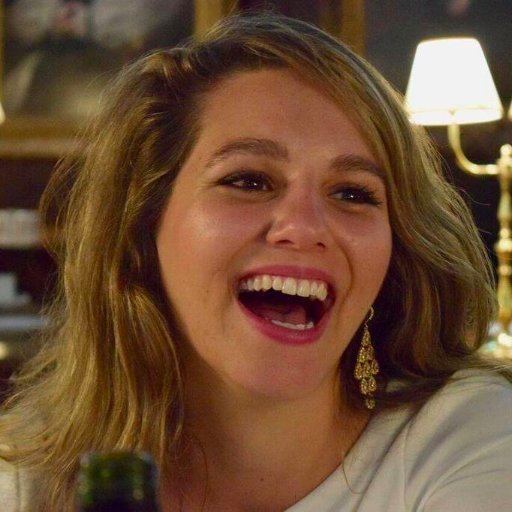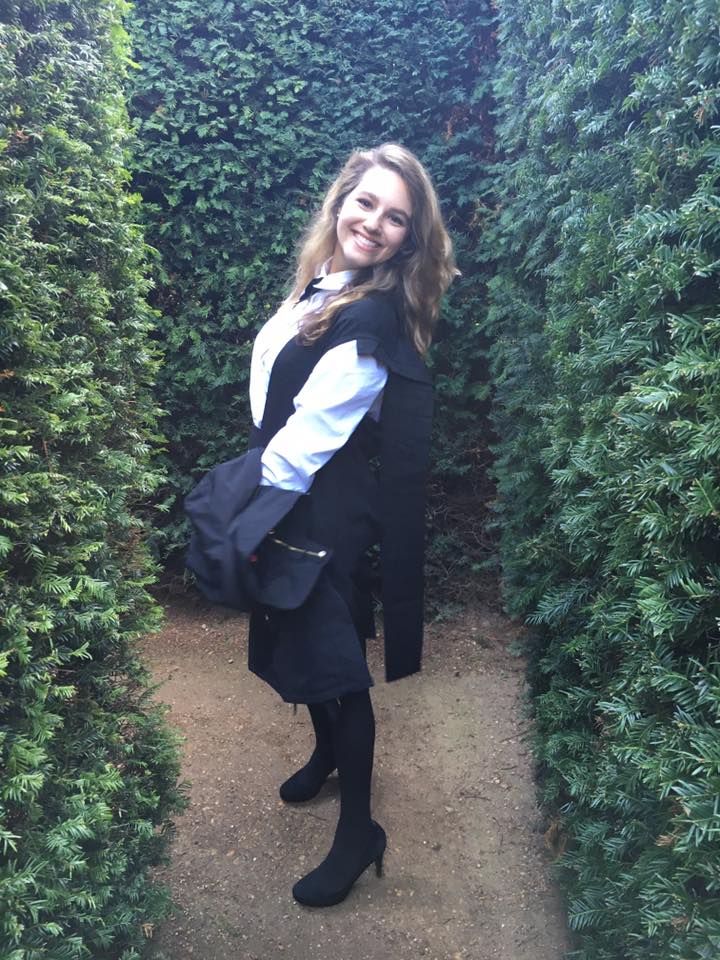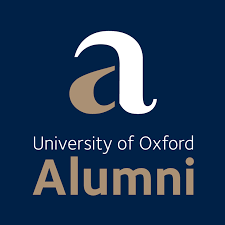Olivia Gonzalez
Counsel at Facebook
After completing her J.D. at Fordham University School of Law, Olivia came to Oxford and Balliol College in 2016 to complete a MSc in the Social Sciences of the Internet through the Oxford Internet Institute (OII). After her studies, she worked as an Associate with Brown Rudnick LLP before joining Facebook as Counsel in 2019.

Could you tell us about your journey to Oxford? You completed a MSc with the Oxford Internet Institute - could you tell us a little about that and what it involved?
When I was 18, I moved from my home state of California to New York to begin my undergraduate degree in philosophy and comparative literature at New York University. While I was passionate about the humanities, my real goal was to become a lawyer working in the human rights, diplomacy, and global security space. I started my J.D. (a 3 year post grad degree in the states) with the goal of focusing on laws of war. I was interested in this subject matter because it was a grey area in the law and had the possibility for positive impact in the form of novel case law or policy. As I continued my studies I discovered that, though legal frameworks surrounding warfare were becoming increasingly well-settled, issues involving cyber security, cyber warfare, and law of the internet remained fertile ground for new legal research. I read more deeply on the subject for the remainder of my time in law school and decided I wanted to pursue a career involving tech and law. I applied to the Oxford Internet Institute with the intention of learning the basics of computer programming so that I could be a more informed lawyer in global security. I gained much more than just that from the OII.
What did you enjoy studying most when studying at Oxford?
 I enjoyed the interdisciplinary structure of the OII -- I was able to study basic Python and SQL, social science methodologies, and statistics, and still take classes on subjects like regulation of technology or law and society. I am also grateful for getting to know my wonderful cohorts at the OII and Balliol College -- my most educational experiences at Oxford came from conversations with classmates over dinner or on long bike rides to Port Meadow.
I enjoyed the interdisciplinary structure of the OII -- I was able to study basic Python and SQL, social science methodologies, and statistics, and still take classes on subjects like regulation of technology or law and society. I am also grateful for getting to know my wonderful cohorts at the OII and Balliol College -- my most educational experiences at Oxford came from conversations with classmates over dinner or on long bike rides to Port Meadow.
You started off as an Associate at Brown Rudnick and then moved to Counsel at Facebook - how did that come about? And what’s it like working for Facebook?
One of the most concrete ways to blaze new legal trails is by creating new case law through litigation. After the OII, I wanted to get litigation experience so that I could have transferable tools to practice law in areas that I found really interesting. As a law firm associate, getting concrete experience in litigation and investigation helped complement my academic background. It also helped me pave the way to go in-house in my current role, which I have loved and grown a lot in so far.
What aspects of your degree(s) have proved to be the most useful in your career so far?
The emphasis on writing and research have been the most useful in my career so far. The thesis writing process (both at Oxford and in law school) helped to sharpen my writing and critical thinking ability. My thesis at Oxford Cracks in the Armor: Legal Approaches to Encryption required a first foray into a highly technical area that I had no experience in. In learning about how encryption works in order to offer a legal analysis, I became comfortable with approaching complicated subjects outside my discipline. Developing a patient 'student's mind' is a skill I have found many applications for in my career so far.
What has been your proudest moment in your career so far?
In law school, I served as a White House intern. I was proud to have been offered the job and grateful that I got to learn from intelligent, good-humored colleagues on a daily basis.
What charities do you support and why?
I support Legal Outreach, a New-York based organization that 'seeks to level the playing field for minority, low income, and first-generation students by implementing programs designed to fill the achievement, outlook, and matching gaps which prevent students from achieving their highest aspirations and reaching their professional goals'. They set up a wonderful mentoring program that matches students with lawyers, sets up mock trial competitions, and generally gives teenagers the confidence to compete in high-level academic environments.
What advice would you give to non-law students who want to embark on a career in law?
Law is sometimes viewed as a 'default' or 'reliable' career for humanities/liberal arts students. I'd advise non-law students to think critically about why they want to join the legal profession and make sure they're not just jumping on a conveyor belt. If there is a real passion for law, I'd advise non-law students to cultivate that interest and find ways to connect it to their academic backgrounds. There can be many hoops to jump through on the way to becoming a practicing lawyer - I'd encourage students to be empowered and not deterred by that.
If there is a real passion for law, I'd advise non-law students to cultivate that interest and find ways to connect it to their academic backgrounds.

